Like many people, Genevieve Villaruel started a new hobby while in lockdown a few years ago: playing the ukulele. She started later in the pandemic: August 2021.
It all started when she enrolled her children in a program at their local library that taught them to play ukuleles over Zoom. Her kids received the instruments for free from the library, but after the course ended, they lost interest in playing, so Villaruel picked it up instead.
“I looked up on YouTube, different videos, and I got my own uke. And then I got more, and really just kept at it,” she says.
Then last year, through one of her online ukulele teachers, Villaruel learned about the Los Angeles International Ukulele Festival.
“I live six hours away. … But I thought that'd be a fun trip,” she says.
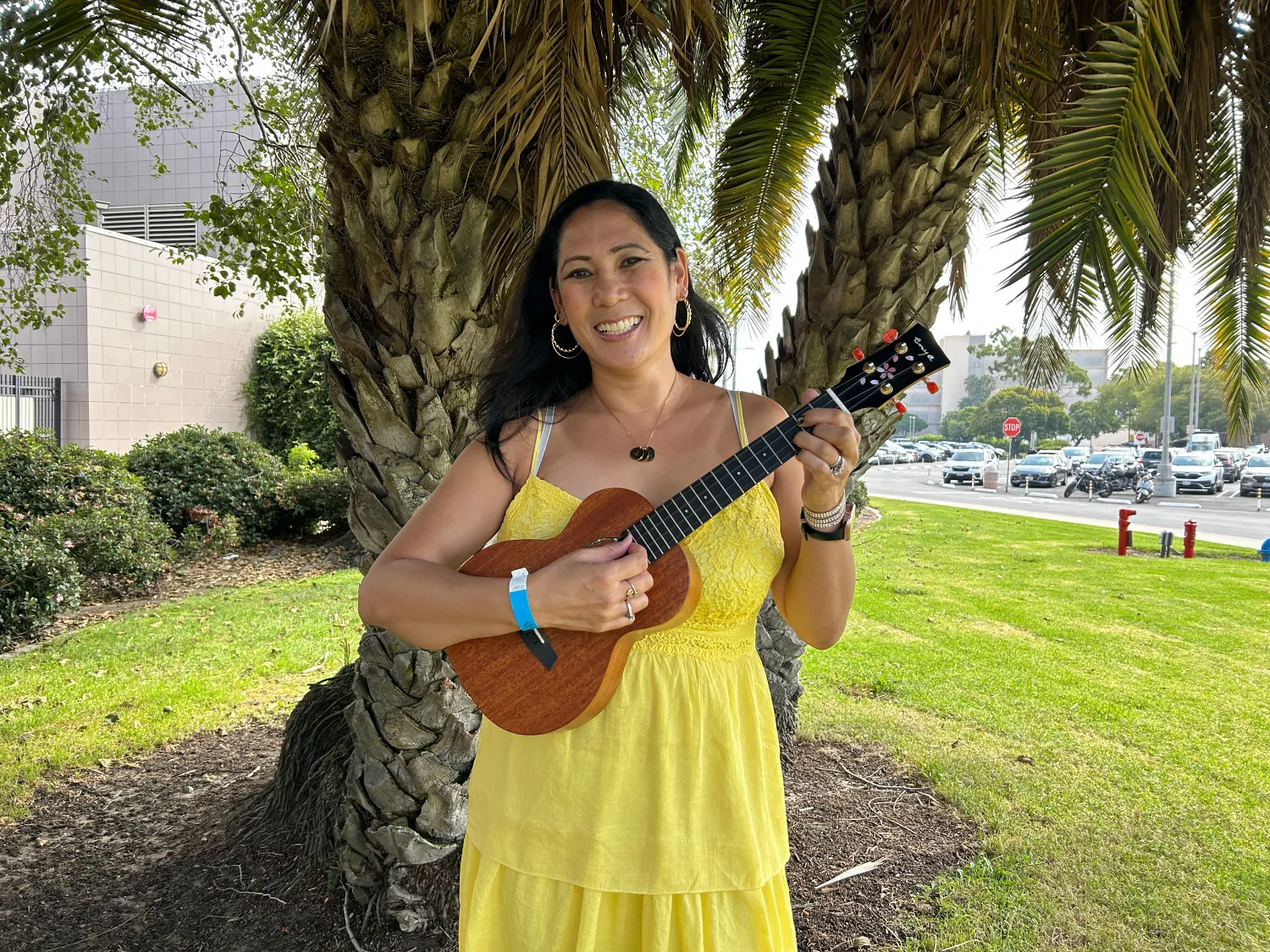
Genevieve Villaruel holds up one of her many ukuleles. “I had to create a spreadsheet to keep track, and I think I'm at 14 or 15,” she says. “It’s a lot. … And I know people who have 20, 25.” Photo by Giuliana Mayo.
This past weekend, Villaruel once again packed her bags and drove six hours to attend the LA Ukulele Festival in Torrance. She was one of about 1,000 visitors.
From September 22 to 24, ukulele players of all ages watched performances, shopped at the outdoor marketplace, and participated in musical workshops.
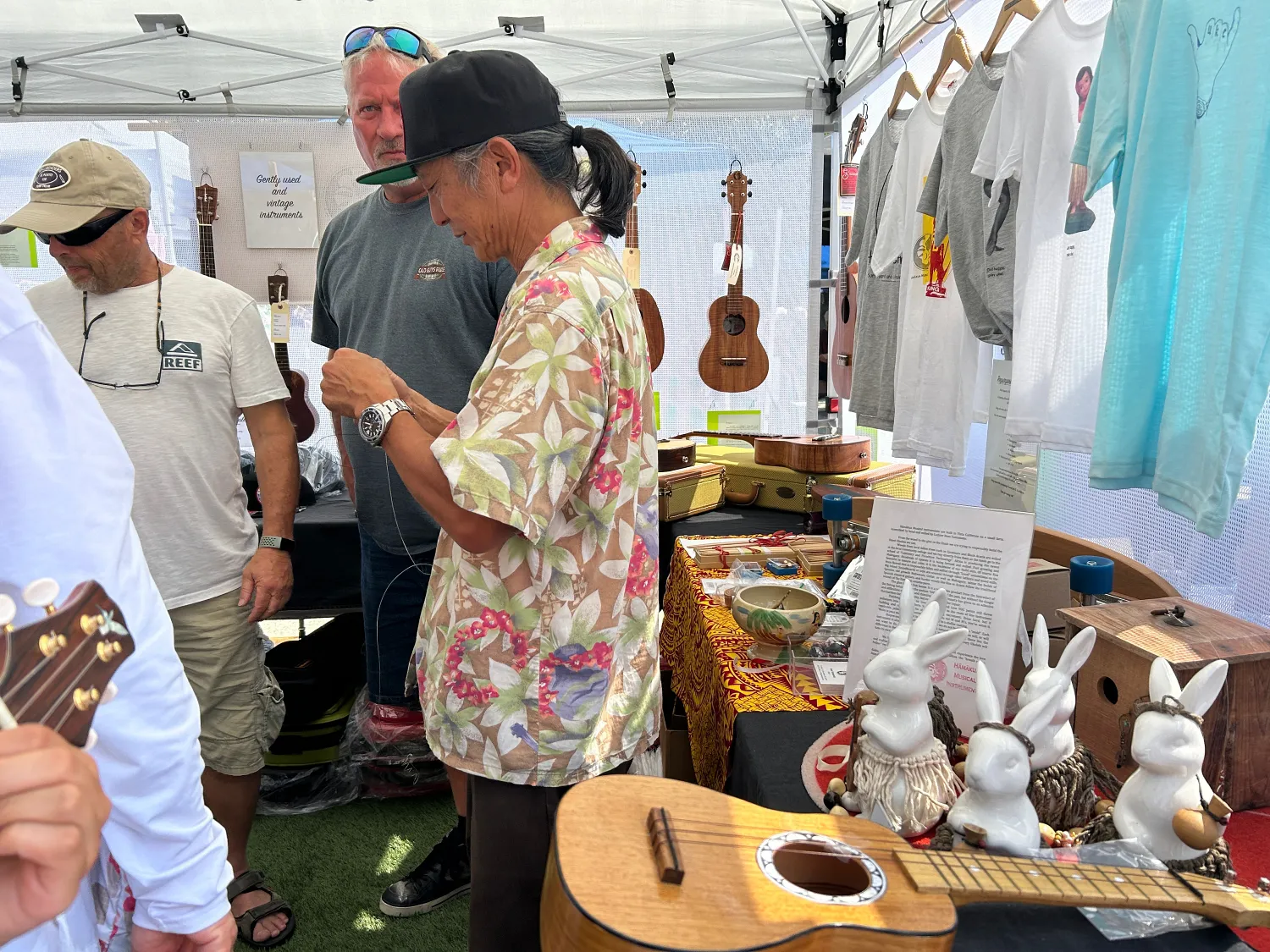
Ross Yamamoto has his own ukulele and guitar-making business in San Marcos. His booth sold gently-used vintage ukuleles and replacement strings. Photo by Giuliana Mayo.
Since it started in 2015, the festival has become a hub for a tight-knit community of ukulele players nationwide. That includes Paula Brothers and Julie Fujiwara-Winge, who became friends with Villaruel when they met at the 2022 festival.
“I started [playing ukulele] … just before lockdown,” Brothers says. “I had a heart attack and I couldn't do anything. And I'm a surfer, but I couldn't surf. My girlfriend that I surf with, she dragged me along to the festival in 2019, so I got hooked.”
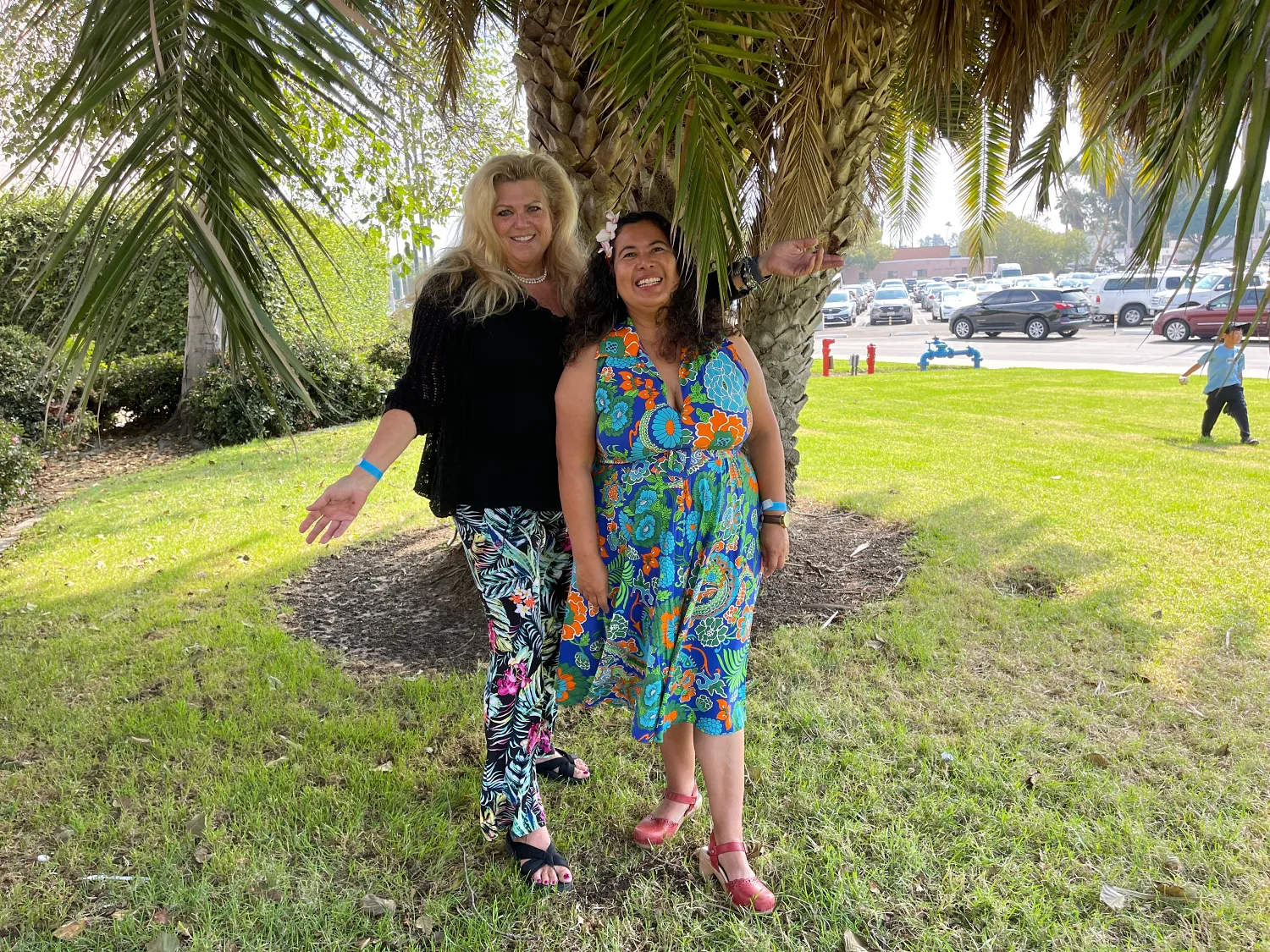
Paula Brothers (left) poses with her friend, Melinda Palacio, whom she met at the Los Angeles International Ukulele Festival. Photo by Celine Mendiola.
Fujiwara-Winge started playing in 2017 when her husband, Jeff, was diagnosed with cancer.
“During his chemo treatments, I thought it would be a good idea for him to have something to do, and he loves Hawaiian music,” she says. “So we went to the ukulele store, and at that time, he said, “I'm not getting one unless you get one.” And I said “I don't want one!” He said, “No, I'm not getting one unless you get one.” So I got one. And we've been playing ever since together.”
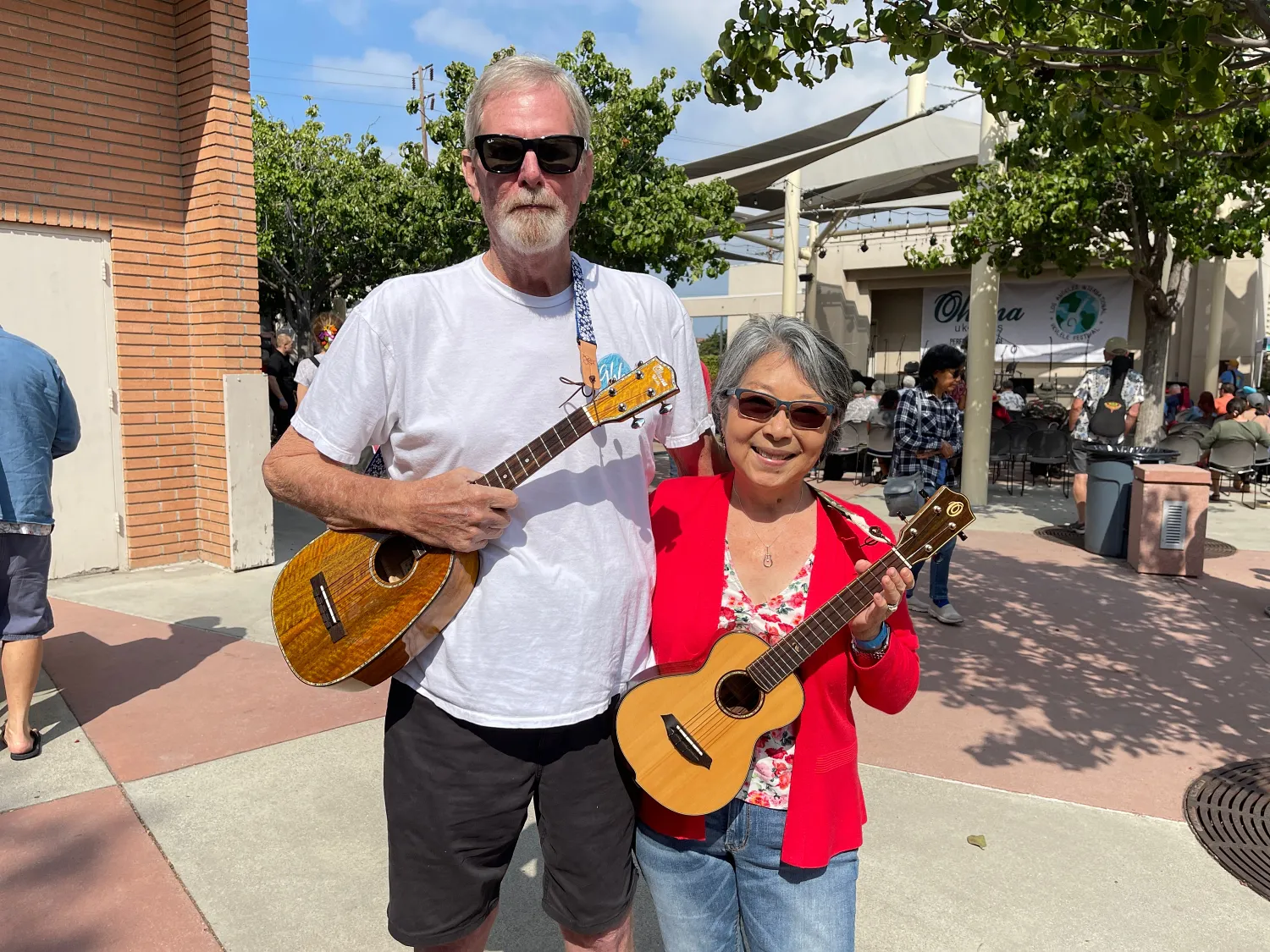
Jeff Winge (left) and his wife, Julie Fujiwara-Winge (right), started playing their ukuleles together in 2017. At the time, Julie bought Jeff a ukulele to soothe himself during chemotherapy. Photo by Celine Mendiola.
Other people at the festival have played the ukulele for much of their lives. For Peter Luongo, a music educator from Canada, it began in 1979. He previously taught children, but now works with adults from across the nation in ensembles like Legacy Ukuleles.
At the LA Ukulele Festival, Luongo was one of several musicians who ran workshops that taught participants how to play new music. In particular, he taught adults how to fingerpick the melody of In the Mood on the ukulele while singing three-part harmonies.
“I'm a real fan of being able to show the diversity of the ukulele,” Luongo says. “You actually are able to play all sorts of music, all sorts of songs on the instrument, and it doesn't have to just be a traditional strum and sing.”
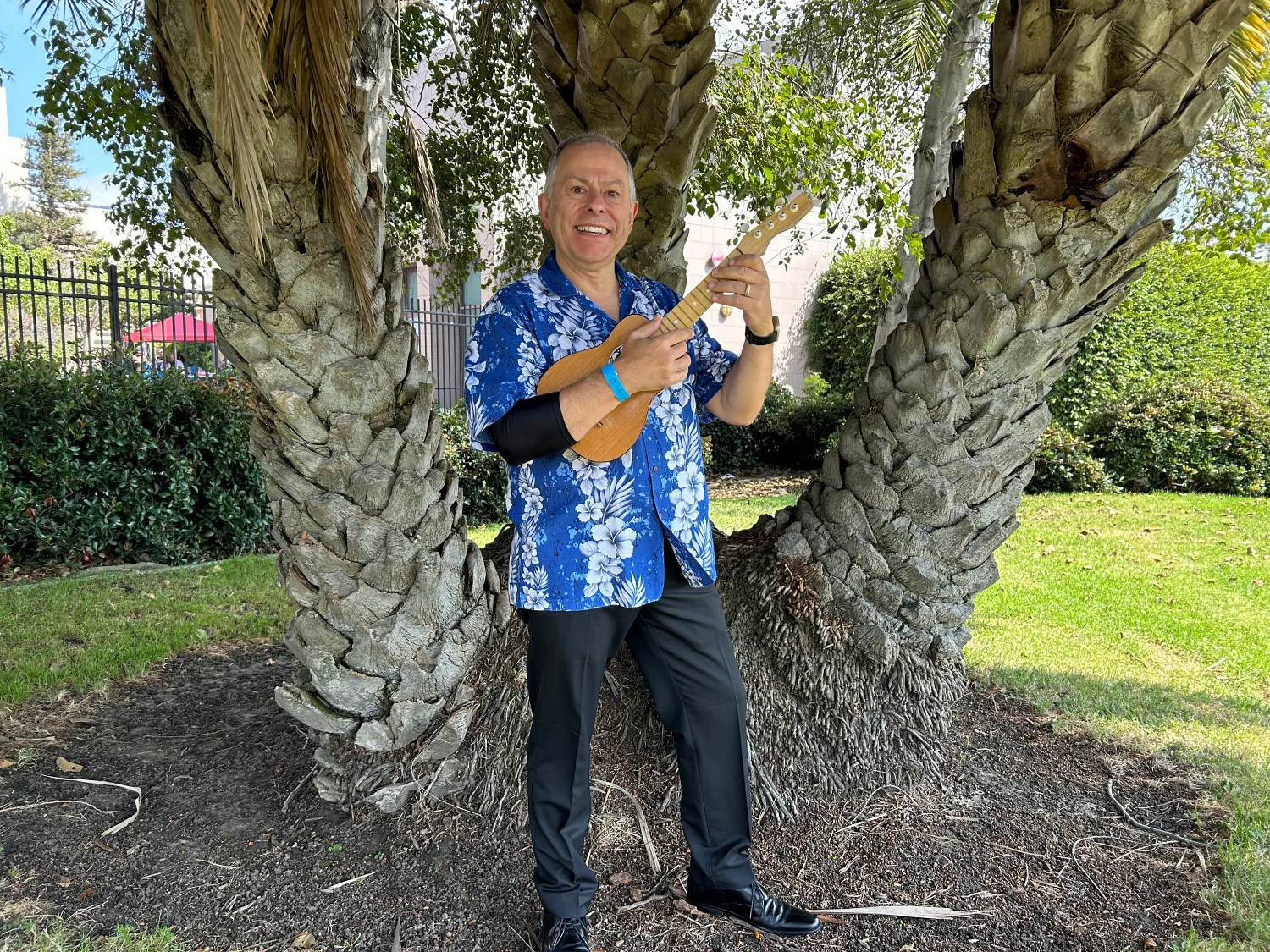
Peter Luongo poses with Celine’s ukulele. In addition to Jesu Joy of Man’s Desiring, he played The Lion Sleeps Tonight and In the Mood on her ukulele during his interview. Photo by Giuliana Mayo.
Away from all the workshops and performance stages, even the vendors at the outdoor marketplace showed their own skills at fingerpicking and strumming the ukulele. Hector Bernaldo, the owner of Manea Ukuleles, has been playing the ukulele since he was 5 years old.
“If you're from Hawaii … you grow into it. It's part of the culture. If you're a young lady, you're dancing hula. And if you're a young boy, you're playing ukulele,” Bernaldo says.
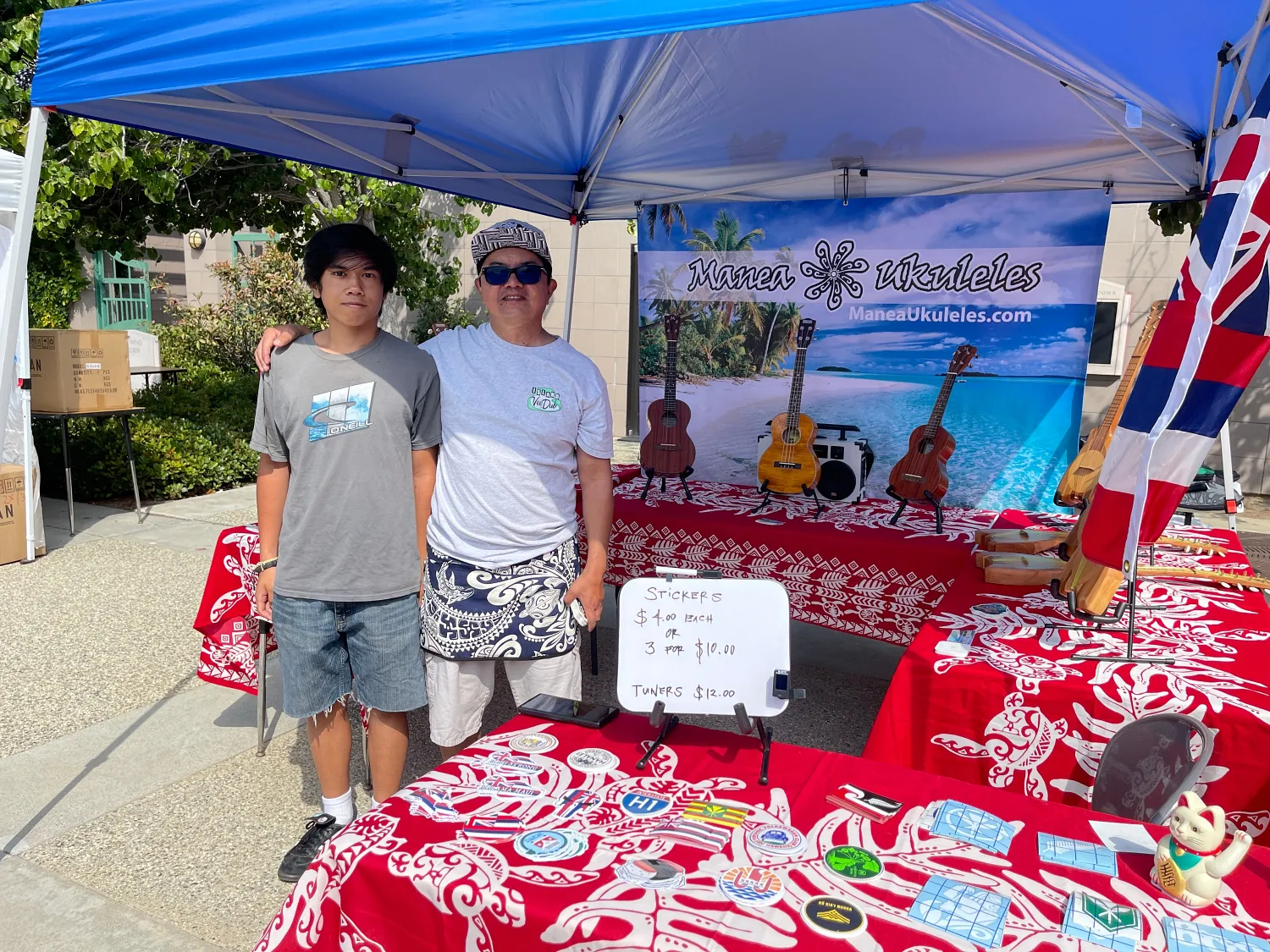
Hector Bernaldo (right) and his nephew run the Manea Ukuleles vendor booth at the LA Ukulele Festival’s outdoor marketplace. Photo by Celine Mendiola.
Bernaldo lives on the island of Kauai, in the “sleepy town” of Kapaa. As a ukulele maker, he notices the different ways people from the mainland perceive the instrument.
“A lot of people, when they come to Hawaii, they look for an ukulele,” he says. “They think of it more as a toy kind of instrument – like the kazoo almost. It has that kind of reputation, but it's a viable instrument.”
For people like Villaruel, the ukulele also serves entry into a welcoming and inclusive community like no other.
“One thing we find about the ukulele community, it's so very friendly,” Villaruel says. “I also played guitar a little bit. The guitar community is not as … beginner-friendly. So [the ukulele is] more embracing of all levels. … It doesn't matter if I'm advanced or if I'm not – it's something fun to do.”
Bernaldo adds, “It brings about … what we call in Hawaii, ‘the aloha spirit.’ It's just this feeling of mutual love and respect for everyone around … and unconditional friendliness to everybody.”
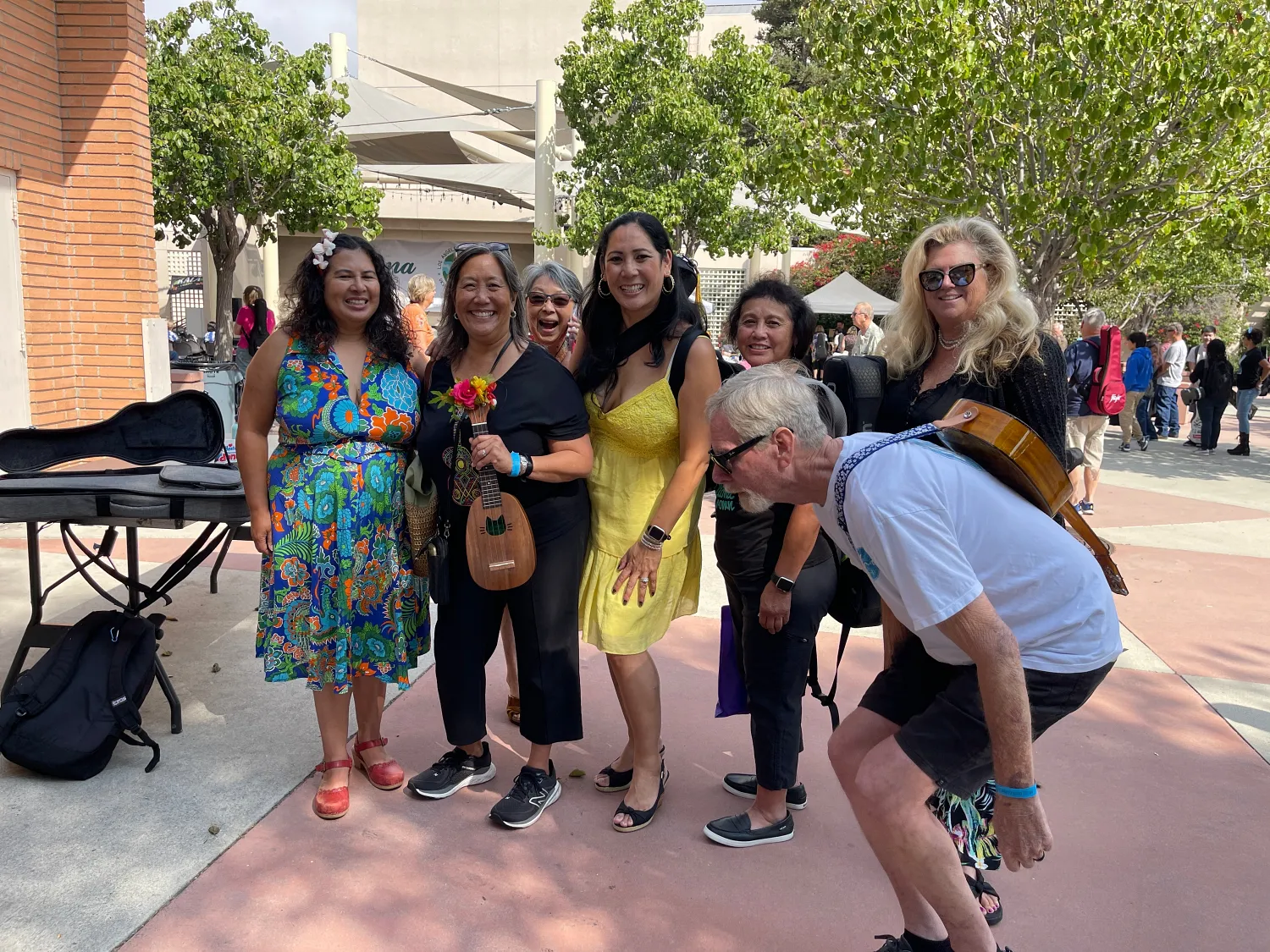
Genevieve Villaruel (center) poses with friends she’s made since first attending the LA Ukulele Festival. From left to right: Melinda Palacio, Barbara Fleeman, Julie Fujiwara-Winge, Genevieve Villaruel, Terri Dube, Jeff Winge, and Paula Brothers. Photo by Celine Mendiola.
